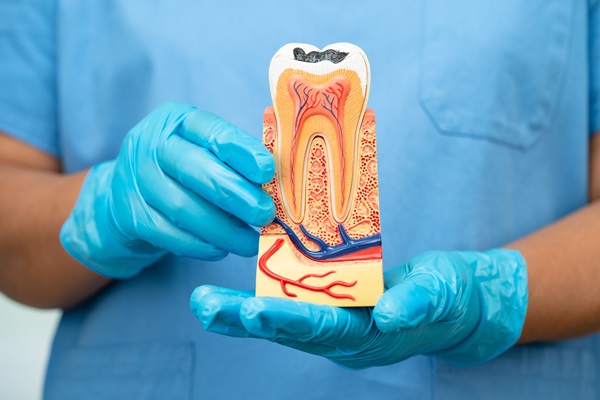How a Family Dentist Checks for Gum Disease at a Dental Check-Up

Gum disease can become quite serious if it goes ignored; however, with the help of a family dentist, it can be caught early on so that treatment can be quickly started. Family dentists are general dentists that specialize in working with families, which includes both the parents and children. Because family dentists specialize in general dentistry, they are trained to catch and treat gum disease. Ready to learn more?
How is gum disease checked for?
Below is an overview of how a family dentist checks for gum disease during a check-up appointment.
Examination
The main part of checking for gum disease is when the family dentist performs an examination. The examination includes a physical and visual part, both of which are important. The physical part is relatively quick and easy, and most of the time, painless. The family dentist will use their fingers to feel around the patient's mouth. Oftentimes, gum disease is exhibited through swelling and puffiness, which can usually be felt. The second half of the examination is the visual part, which is extremely important. The family dentist will carefully inspect every area of the patient's mouth, being sure to check for inflammation, redness or recession.
Probe
If the family dentist determines that there are some red flags during the initial examination, then they will move on to using a probe. A dental probe looks similar to a tiny ruler and it is used to measure the pocket depth of the gums. Healthy gums are between 1 to 3 mm in size, whereas unhealthy gums may have pocket sizes between 3 and 6 mm. If the gums are between 3 and 6 mm, then it is likely that gum disease is present. If gum disease is present, this part of the check-up can be uncomfortable. However, if the gums are in good shape, there should not be any pain.
X-rays
When a family dentist does detect gum disease or signs of an infection, they will also get an x-ray of the patient's mouth. X-rays can highlight bone loss, which may not be visible to the eye otherwise. The x-ray images can highlight if the bone beneath the gums has deteriorated, which will also indicate the stage of the gum disease. The family dentist can use the x-rays to determine the course of treatment, including whether or not a specialist is required. In some severe stages of gum disease, surgical procedures may be required to completely remove and treat the infection.
Get started today!
A family dentist is a great resource to utilize for routine check-up appointments, which often include a check for gum disease. If caught early enough, a family dentist can take the appropriate steps to treat the gum disease, thus improving oral health. Any questions or concerns regarding gum disease and how it is checked for should be addressed by a family dentist. Reach out today to learn more or to get started.
Request an appointment here: https://beautifulmouth.com or call Beautiful Smile, LLC at 8566321728 for an appointment in our Gibbsboro office.
Check out what others are saying about our dental services on Yelp: Family Dentist in Gibbsboro, NJ.
Recent Posts
Any family dentist will tell you that regular dental visits are important. Some people think that good oral care means only brushing the teeth twice every day and flossing once each day. While these are important practices, you should also schedule dental appointments for professional teeth cleaning and checkups. These visits are vital for the…
Finding the right family dentist is important for your family’s oral health. An experienced dental care provider can provide quality care for your whole family. Having one dentist overseeing your family’s dental health will provide your family consistent care. If you want to know what to consider in selecting the right dentist for your family,…
Family dentists are trained in general dentistry services, which means they are prepared to help individuals with a number of issues, including chipped or broken teeth. Chipped teeth can become a serious problem if they go ignored. Because of this risk, it is necessary to consult with a family dentist as soon as a chip…
You can have an emergency dental visit with your general dentist. Knowing when you may need urgent dental care will prevent the dental problem from worsening. It will also relieve your pain and discomfort. If you want to know if you may need an emergency dental visit, here are the signs to watch out for.Persistent…


